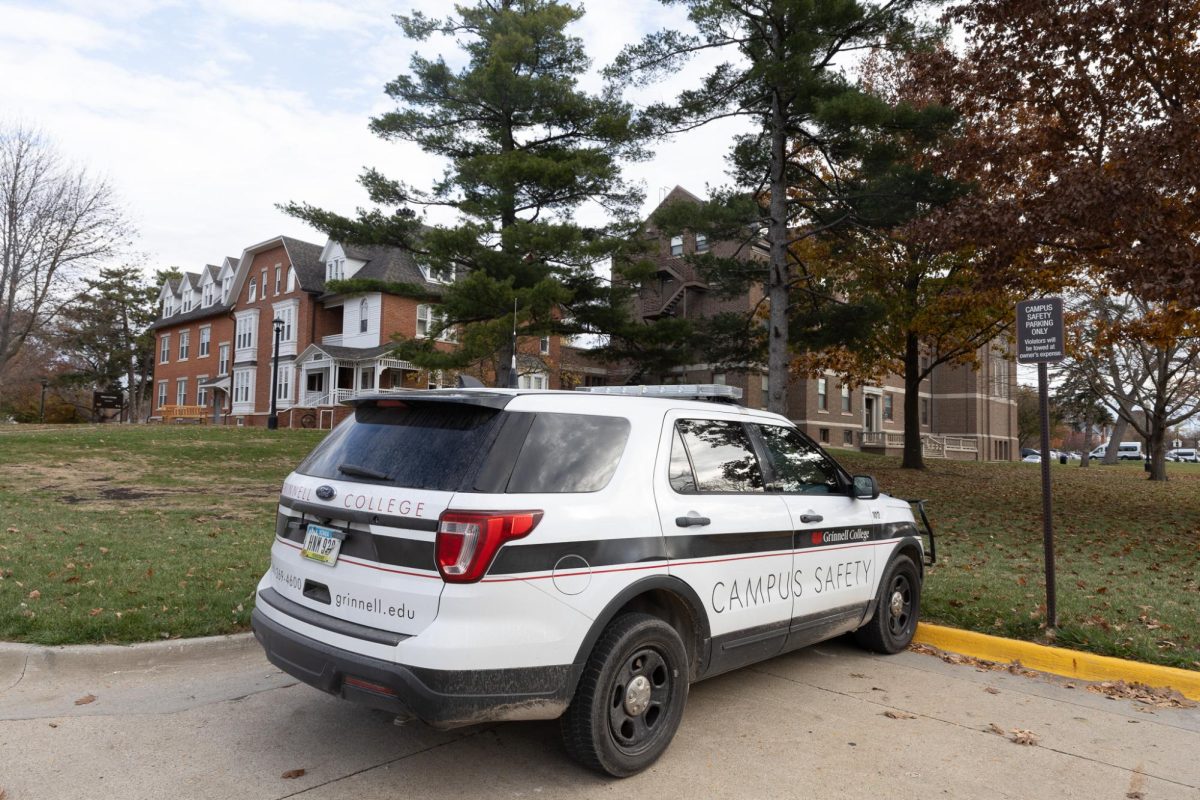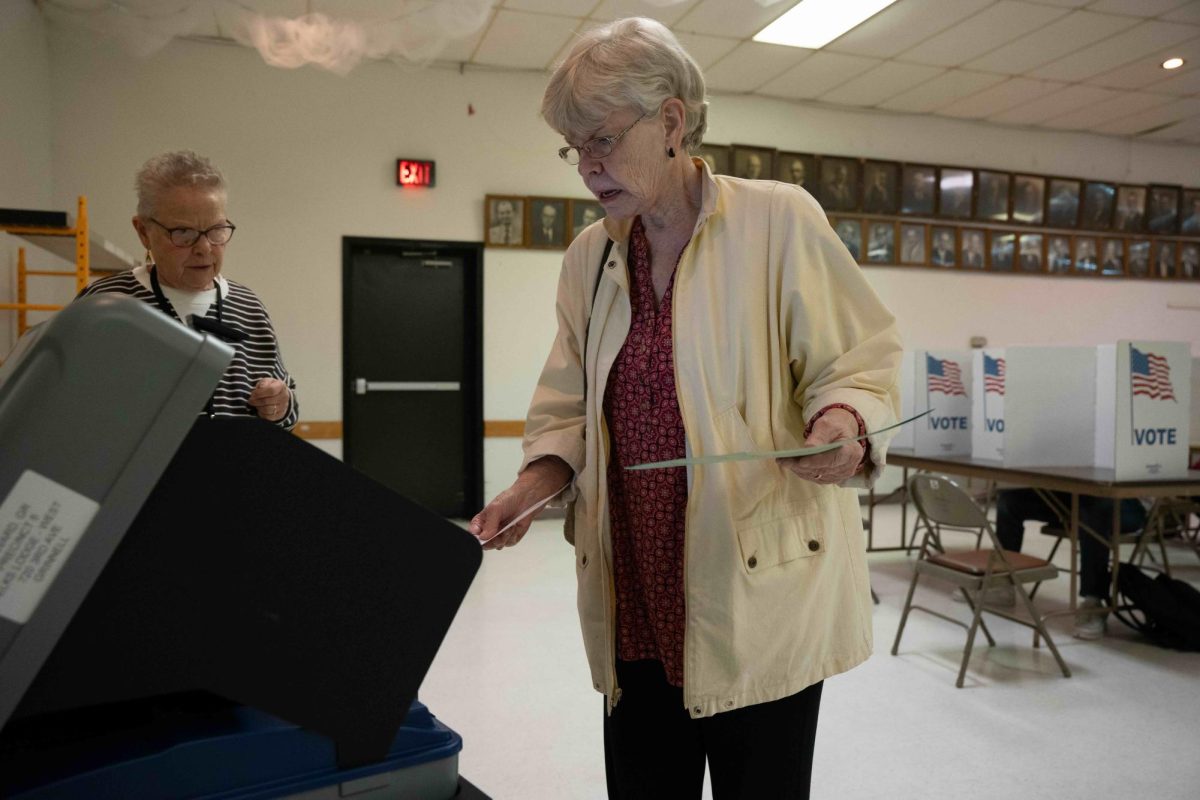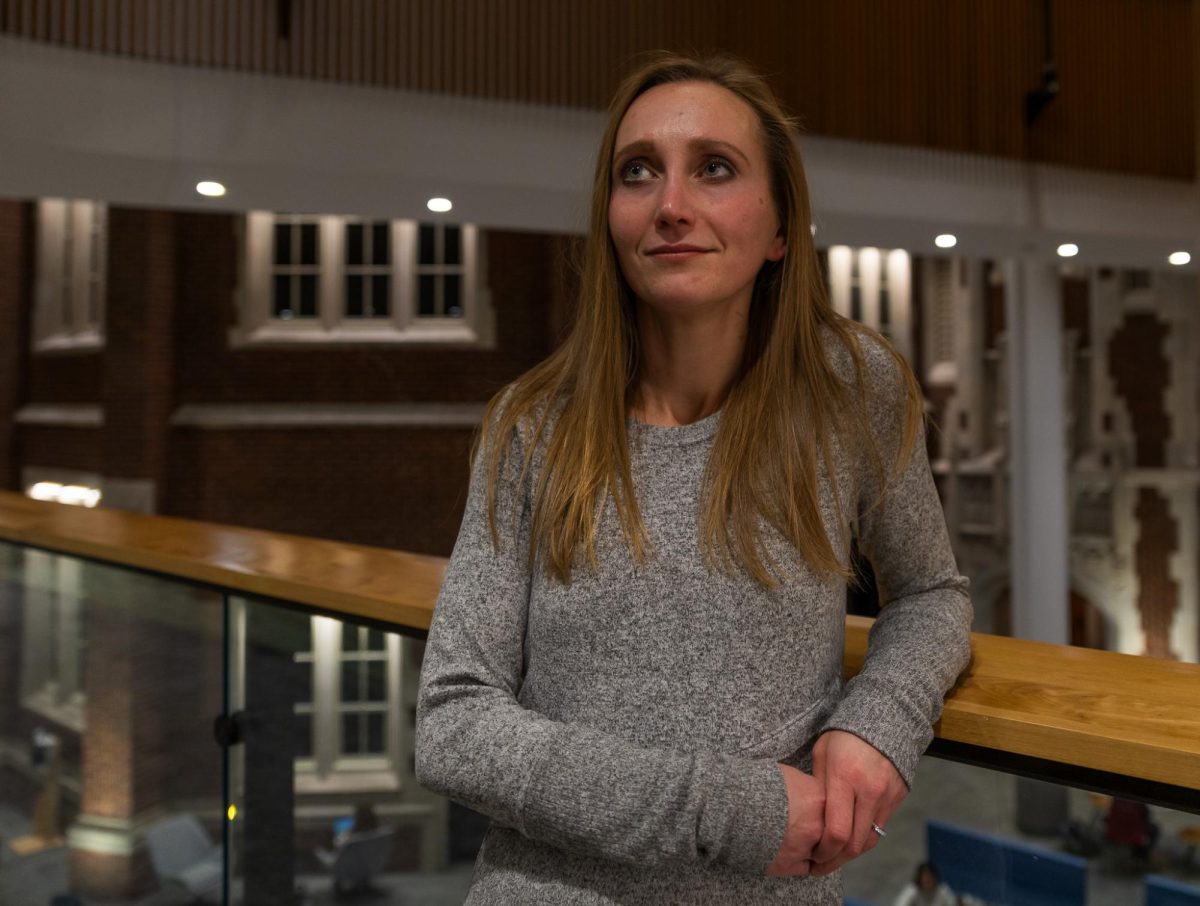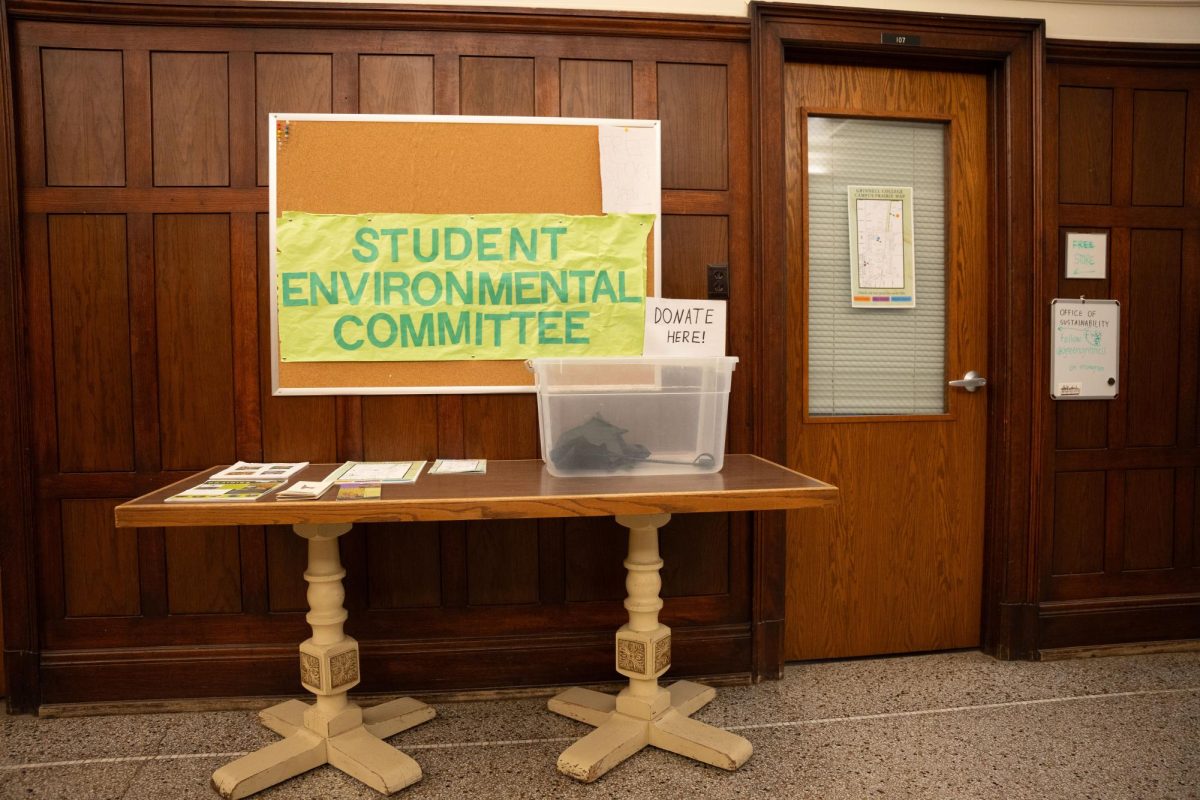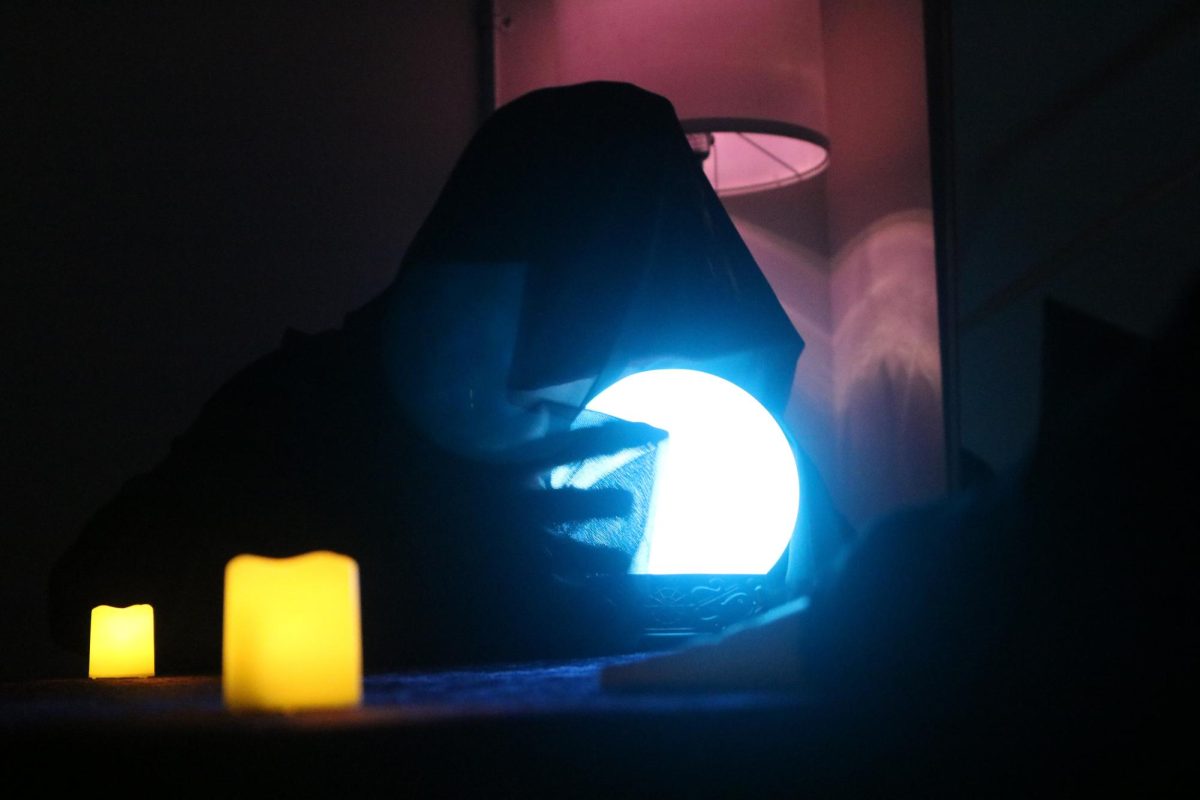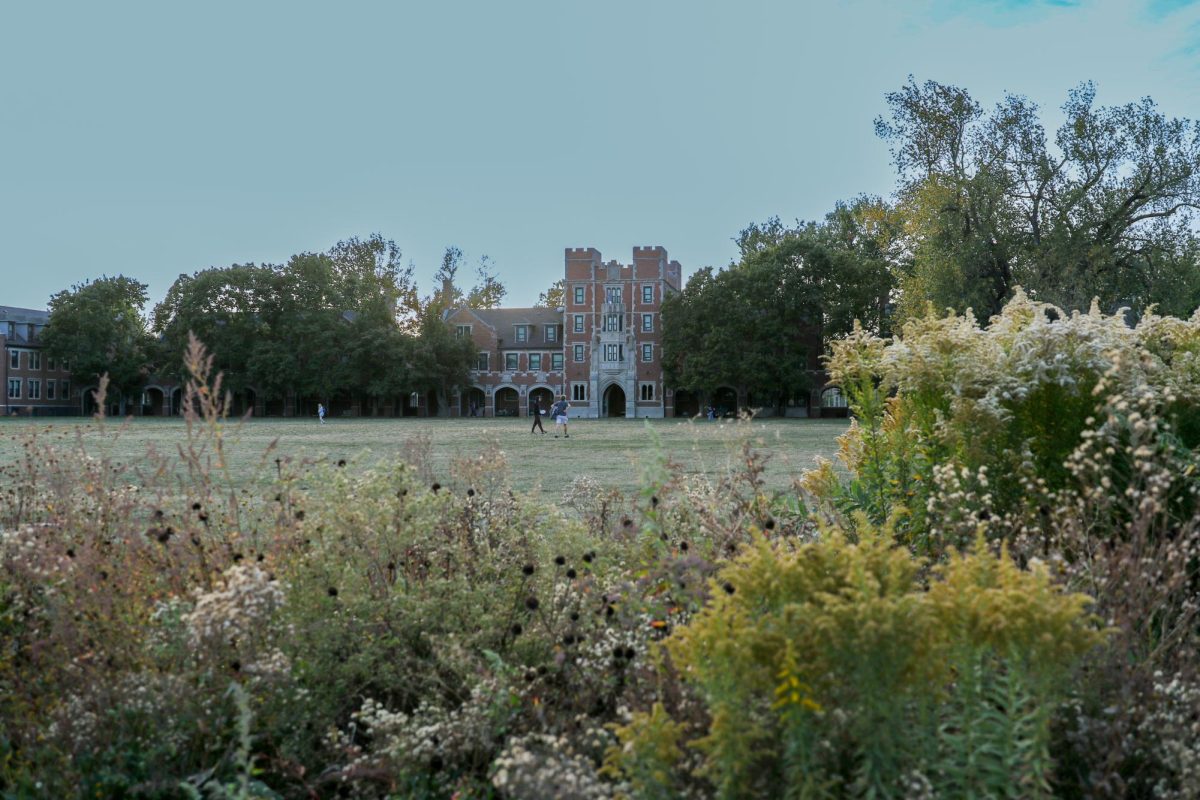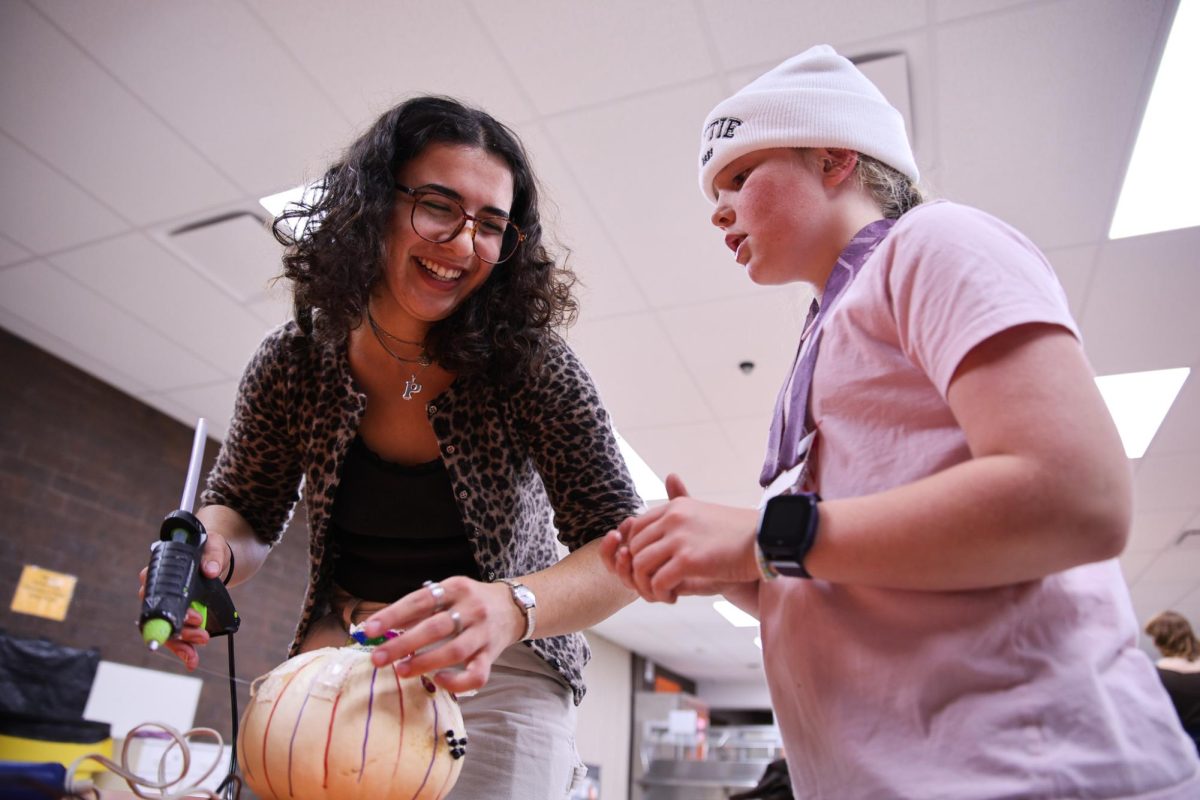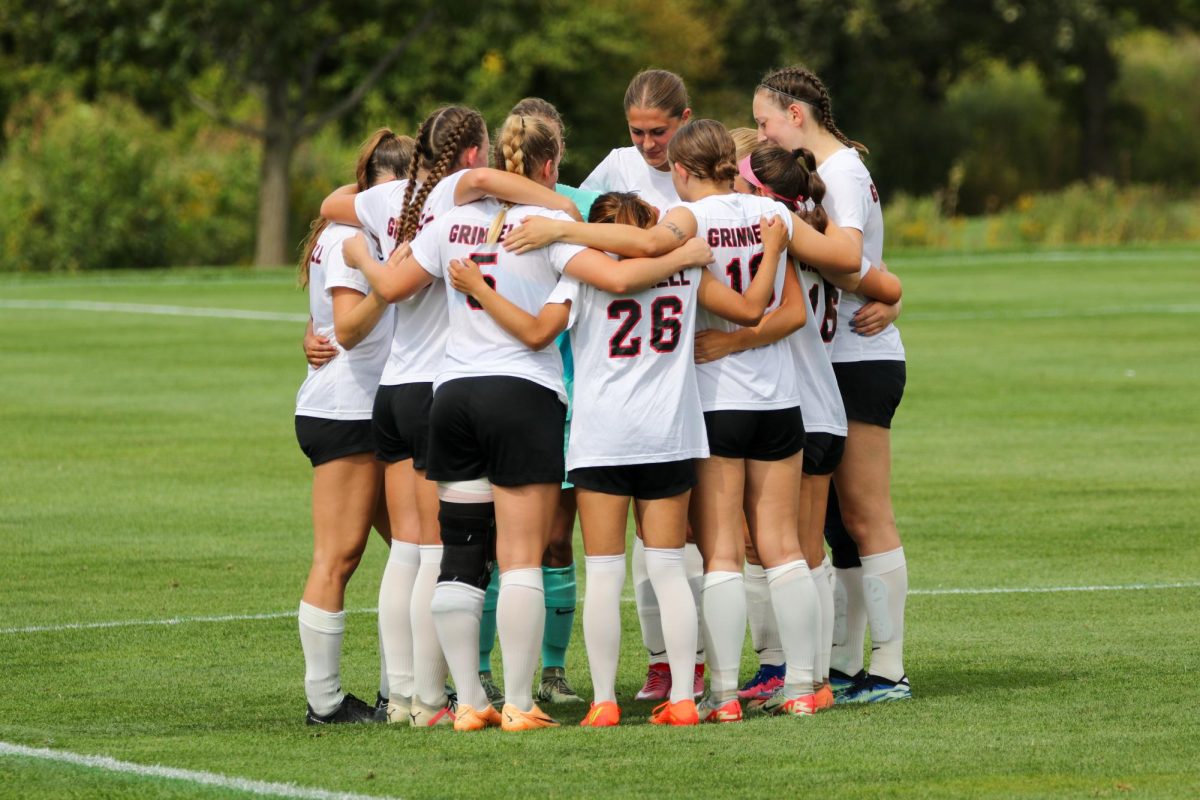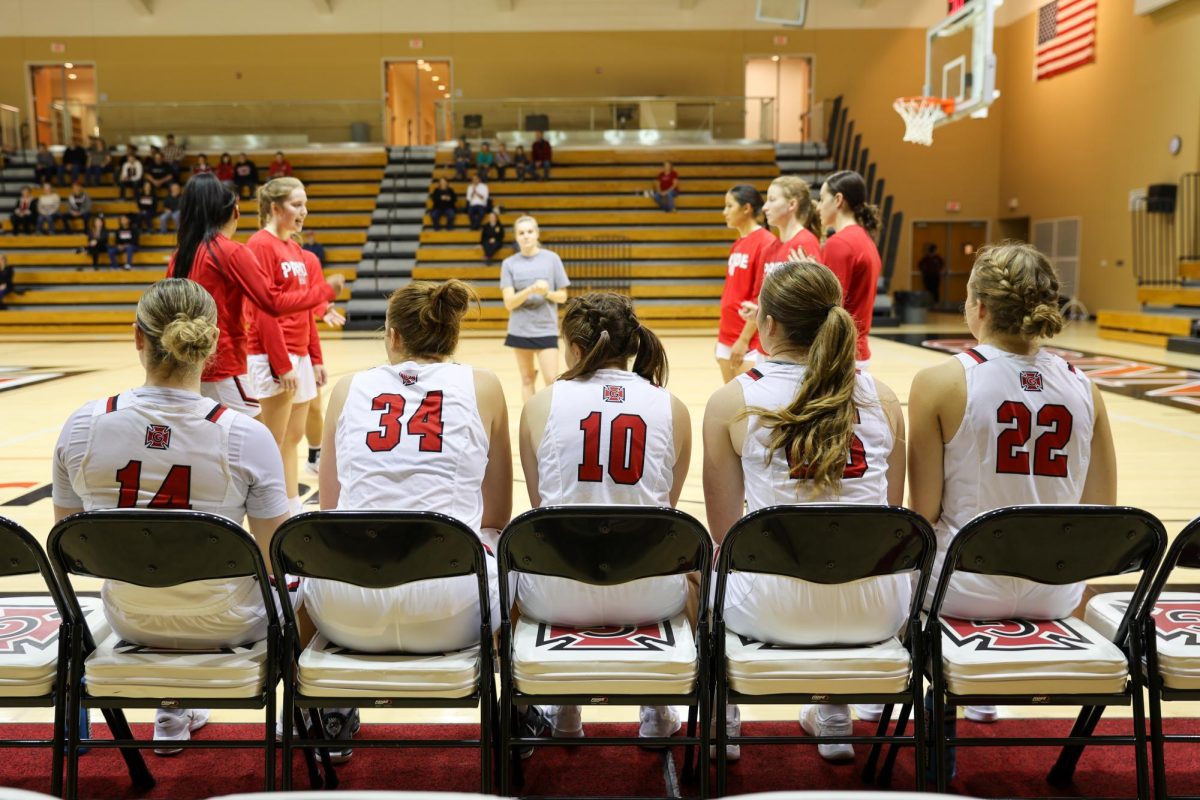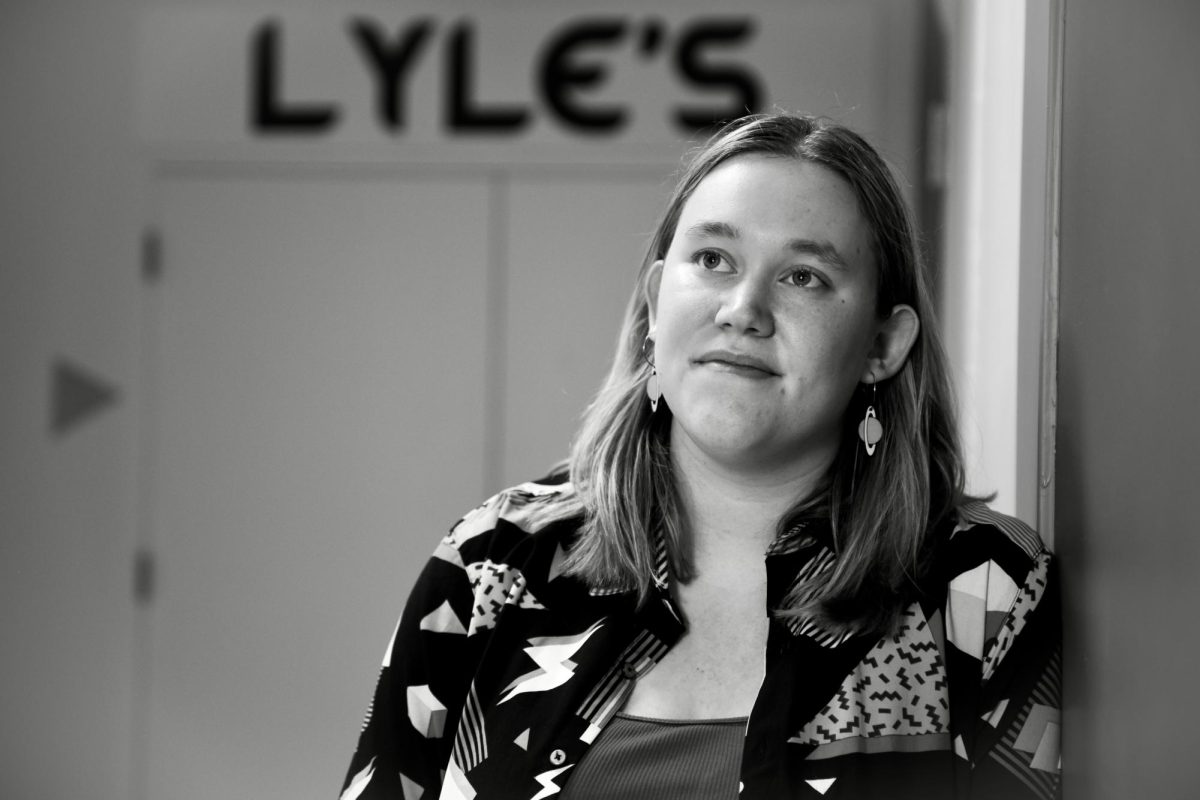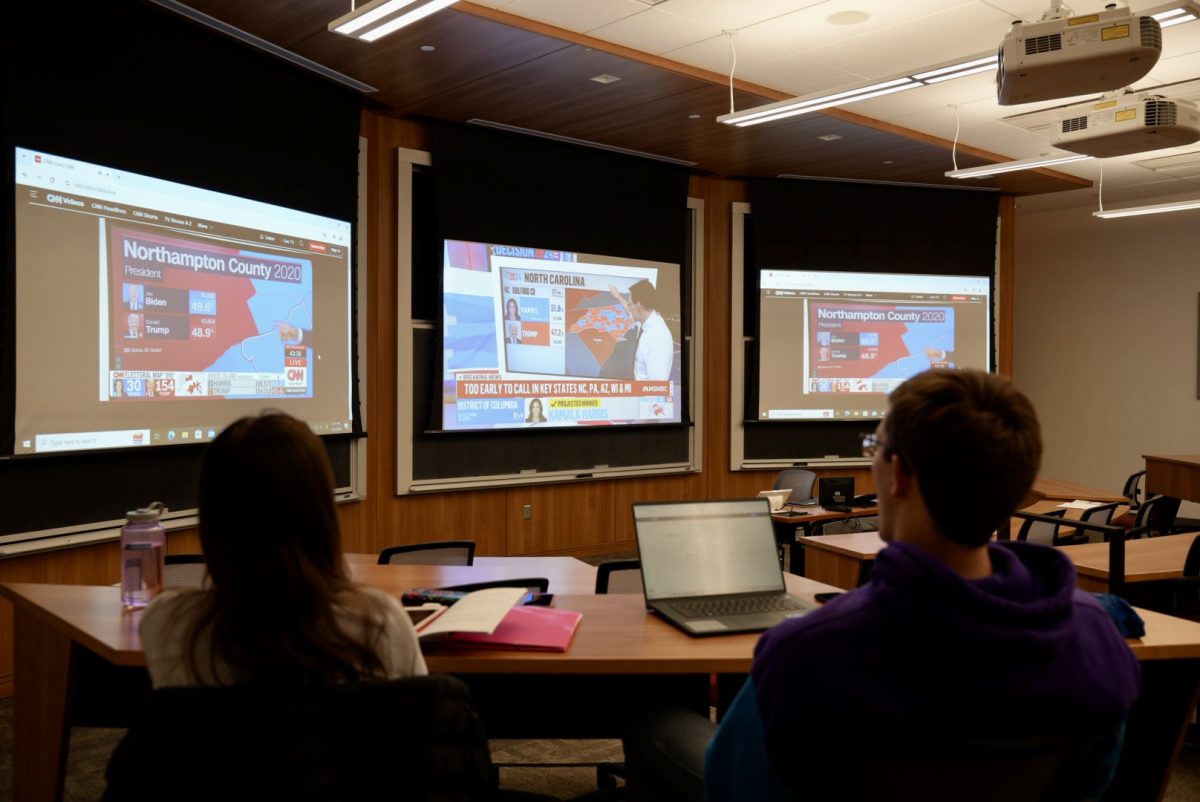By Christopher Squier
On Tuesday evening, students tossed pancakes and wore beer goggles that simulated various levels of inebriation. This wasn’t a simulation of hell week, but rather the annual Wellness Fair, designed to lift students’ spirits during the typically gloomy Iowa February.

Grinnell College Wellness Coordinator Jen Jacobsen ’95 has helped organize the Wellness Fair for the past three years. She wanted it be held in February since it usually is the hardest month for students.
“We choose it to be in February, because sometimes February is the middle of that long haul, between winter break and spring break,” she said. “The weather last week proved it can be sometimes a dismal month.”
With over 35 tables of Grinnell community and student groups this year, Jacobsen is proud to see the Fair’s growth.
“What I’ve been really excited about is every year we’ve grown by a couple of tables, and every year we’ve gotten a few more student groups to participate,” she said.
New displays included Central Iowa Family Planning, the libraries and the new Hall Wellness Coordinators.
“Grinnell Regional Medical Center really does a lot with us in rounding up resources from the hospital,” Jacobsen said. “But then, campus offices and, really importantly, student groups also do a lot for us.”
Cory Jackson of Grinnell Regional Medical Center was tabling for the chair massages and handing out essential oils.
“Essential oils are just different scents that are good for different conditions,” she said.
They had four scents—lavender, ginger, peppermint and tea tree—that aid various problems, from anxiety to muscle aches and pains, to stress and sore throats.
“We put a little on a cotton ball and tape it to [a student’s] shirt, and it stays good for a couple days,” Jackson said.
The therapy dogs, who also come during finals week, were one of the most popular aspects of the fair. They lay happily among the crowds of students. Some are trained as therapy dogs, while others are just very well trained pets.
McKenna, a rescued mutt, enjoyed herself for a while, but had backup with the ten or twelve other dogs in the therapy dog group, only a number of whom came to the Wellness Fair.
Jacobsen stressed that wellness has many different aspects that need to be examined.
“It’s not just the physical aspects of whether you are moving your body or eating well. There are so many other dimensions—spiritual, emotional, intellectual, social, environmental,” she said.
“It’s really aimed to paint as broad of a picture of wellness as possible, because something that speaks to one person might not speak to someone else, and we’re so much more of a sum than our physical counterpart,” she said.
The meditation room and labyrinth contribute to the spiritual component by allowing students to have a place to focus and reflect, according to Jacobsen.
“Wellness isn’t just about going to gym—it’s maybe about finding quiet space,” she said.
While Jacobsen applauded the community groups, she wants the fair to be mainly student-driven.
“I think it’s important for our students to realize that they can be leaders and mentors and supporters and cheerleaders in each other’s wellness,” she said, “whether it’s giving out hugs or compliments at the validation station, or providing information on sexual health, or educating about wellness from your own culture.”
